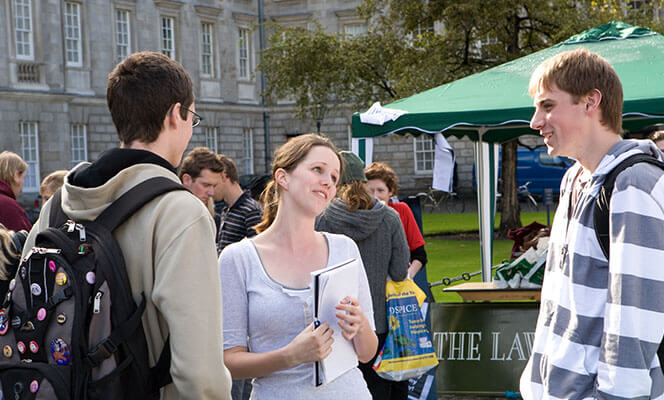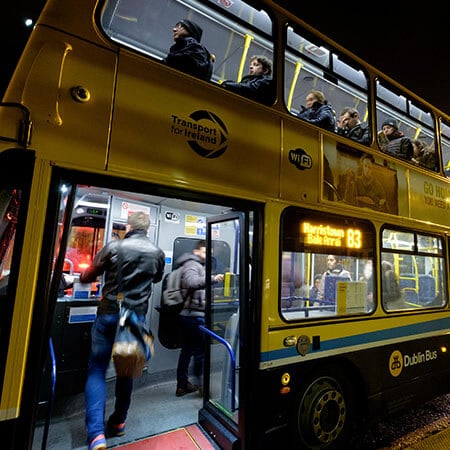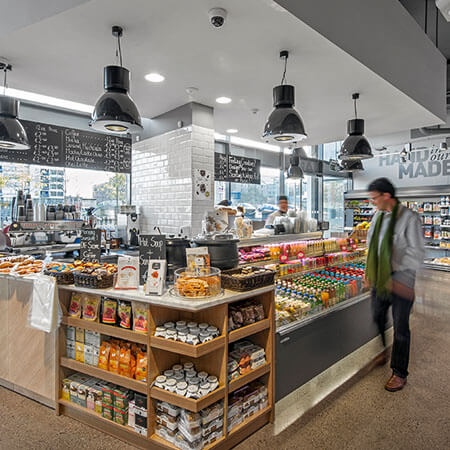For international students arriving in Dublin, the first days in the city can shape your overall experience. With that in mind, here’s a short checklist of things to help you get settled in. Ticking them off will help you have a fun and hassle-free time while studying in Dublin.
Set up your finances
Having a bank account will make life easier, so getting one early on is a good idea.
To open one, you must be over 18. You’ll also need proof of address and a photo ID. This might prove difficult if you’re still looking for student accommodation. However, some banks will accept proof of address from your home country.
Find out about Dublin’s most popular banks in our full guide to opening a bank account.
Make sure you have health insurance
If you are an EU or EEA student and hold an S1 certificate, you can access hospital services in Ireland for free. If you already have one, be sure to bring it with you. Otherwise, contact your country’s health insurance authority to find out how you can obtain one.
If you are an EU or EEA student on a short-term stay of three months or less, the European Health Insurance Card will give you access to healthcare in Ireland for free or at a reduced cost. So, or you don’t have one of these, be sure to get one before you arrive in Ireland.
Students from non-EU countries aren’t covered for any free, off-campus medical assistance. So they need to purchase their own private health insurance. They can do this in advance or upon their arrival in Dublin.
You can find out more information in our guide to healthcare in Ireland.

Get your phone up and running
There are three main mobile networks here in Ireland: Vodafone, Three and eir. If you have a phone already, switching to one of them should be relatively straightforward. You can just buy a sim card.
However, if your phone is locked into your current network provider, you may have to contact them in order to connect to a new network.
Irish phone networks allow you to pay through pre-paid credit or a monthly bill. There’s a huge range of plans available, so it’s a good idea to use a comparison site like Switcher.ie to find the best option for you.
Save some important numbers
You may never have to dial them, but it’s a good idea to save some emergency numbers on your phone. In Ireland, you can contact the emergency services on 112 or 999. Both of them will connect you with the police, fire brigade and ambulance.
If you plan to travel to the UK, both numbers will work there too. But, in the rest of Europe, only 112 will work.
You can find out more in our dedicated guide to Ireland’s emergency numbers and helplines.

Go to freshers’ week
Freshers’ week, which is also known as welcome week or orientation week, is a great opportunity to check out your new university, meet people in your course and get involved in clubs and societies early in your first term.
See what your university has planned at the links below:
Explore Dublin’s neighbourhoods
There’s a lot of different ways to discover Dublin. You could embark on one of Publin’s pub crawls or find a niche walking tour to match one of your interests. Dublin-centric websites like Totally Dublin, the Dublin Inquirer or Visit Dublin are also great resources for learning about the city. They’re jam-packed with great things to do too.
Dublin is a relatively small city and its most interesting neighbourhoods are all within walking distance of each other. So why not seek out some other international students who’ve just arrived in Dublin and head for a stroll? You can find companions on ExpatExchange, Expat Meetups or the Expats in Dublin Facebook page. You can also check out our advice for making friends in the city here.





